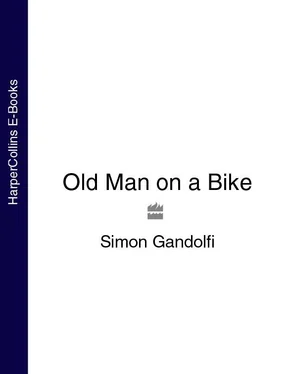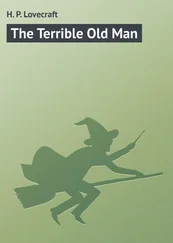I return reluctantly to the city. Keeping my grip loose stops my hands cramping. Sixty to seventy kilometres an hour is a comfortable cruising speed. I will need to stop every three-quarters of an hour to avoid cramps in my thighs. I can’t envisage riding much more than 200 kilometres in a day, maybe 250. How far is Tierra del Fuego?
Central Veracruz is thronged with happy people in shorts and short skirts back from the beach. I fall into conversation with a Mexican businessman in his late forties. He has visited Europe a few times and is amused at the envy for other people’s lives that tempts so many northern Europeans to move to Mediterranean countries. He loathes the term ‘Latin America’, preferring ‘Iberian America’. He is contemptuous of Hugh Thomas’ history of the Conquest – he read a couple of chapters and chucked it in the bin. I suspect that he was incensed by a Welshman daring to interpret a Spaniard. His jaundiced view of the US is typical of most Mexicans with whom I talk.
I quote my friend Don to him: ‘Everyone is trying to get here …’
‘No one with any choice,’ the Mexican retorts. As to his own people, ‘The only pure bloods are horses. Everyone of us is a mixture: Indian, black, Spanish. We are all mestizos.’
I have been told that Sunday evening at the Café de la Parroquia is a tradition among the bourgeoisie of Veracruz. I hope for an ancient building on the harbour front. I discover a modern caféteria. Fortunately the ambience is excellent for people-watching. A few tables are occupied by elderly Spanish émigrés. The women are anaemically pale and have thin lips, thin hair and narrow chests. They sit somehow folded in on themselves as if nervous of being contaminated by the touch of a sexual deviant. For ‘deviant’, read ‘voluptuous native’. Watching them, I am reminded of the leftover French colonials at a café in Tangier where I interviewed Paul Bowles years and years ago. In Tangier we ordered chocolate cake. The Café de la Parroquia is so clean that I risk a lettuce and tomato salad.
Later, I watch a charming programme of 1930s dancing in the Plaza de Armas and then attend a sung mass at the cathedral. Lit by chandeliers, the cathedral enjoys a tranquil beauty. The congregation is a mixture of holidaymakers and the resident sedate. Men and women are in equal numbers. Many are young. Communicants worldwide wear the same gentleness of expression.
Veracruz, Monday 15 May
Baggage Day: I’ve bought a small backpack and two satchels at a luggage store. Admittedly, one satchel is dark green, and the other dark blue: they were on special offer. I require a metal sheet to be cut and bent to keep the satchels off the chain and rear wheel. I have directions to an alley of metalworkers. A ragged awning shelters the narrow entrance and I miss it a couple of times. I wheel the bike over the pavement and have the choice of twenty or so small, open-fronted workshops. Artisans in whatever country always know best. They don’t listen. I am a foreigner; foreigners, by definition, are short on sense. Work ceases in the alley while the metalworkers argue between themselves as to what I need. I know what I need and what I want. I have drawings. I am surplus to the discussions. Finally one of the artisans confronts me with a drawing. It differs from my drawing by half a centimetre here or there.
A few workers return to their own shops. Most remain as onlookers, all voicing opinions of the work and of my proposed journey and why I should or shouldn’t take a particular road.
Cost of the metalwork plus satchels and backpack is fifty-seven dollars. Any solution from a bike shop would have been double. I am well pleased. I shall miss the unfailing friendliness of the Veracruz people – and the food. Veracruz University is my sole disappointment. A history department existed in ancient times. History has been replaced by computer sciences.
Veracruz shuts down for luncheon and siesta. Only the cops stay open. The federal police are equivalent to Spain’s Guardia Civil and the most feared of Mexican police forces. Few people voluntarily visit the Federales. The Veracruz HQ is a modern building at an intersection on the fringes of the city. My arrival is a surprise.
Mexican police in Hollywood movies are invariably criminal types, small, swarthy and scruffy. The duty officer is six foot two and blond. His uniform shirt is starched. He wears riding breeches and his boots gleam.
I have with me Hugh Thomas’ history and a road map. Surely a federal policeman would recognise the ancient place names? The Fed stands and spreads the map on the desk. Only then do I fully realise his height – big and a cop, the very essence of authority I feel reduced to the status of a small schoolboy – a curious feeling for a man in his seventies.
The Fed studies the place names on Cortés’ route and points to their equivalent on the modern map. He examines me with interest. ‘You wish to take this route? On a motorcycle? Tell me, when did you last ride a bike?’
‘I don’t know.’
‘Yes, you do.’
‘A while ago.’
‘How much of a while ago?’
‘Well, I rode a scooter in Havana. That was in the nineties.’
‘Not a scooter. A bike.’
‘Something like thirty or forty years.’
‘Which?’
‘I’m not certain.’
‘Yes, you are.’
‘Well, forty … more or less.’
The Fed is satisfied: ‘Forty. And why do you wish to ride this particular route?’
‘When Cortés reached the top of the pass, he looked down on what is now Mexico City. He went on to conquer Mexico. I thought that if I could reach the top, I could go on to reach Tierra del Fuego.’
‘The south of Argentina?’
‘Yes.’
‘All the way on your small motorcycle?’ The Fed studies my passport. ‘Cortés commenced by marching north. Aged seventy-three, is it sensible to commence such a journey by riding in the opposite direction to your destination?’
The Fed traces the route up the pass on the modern map: ‘Much of this is a dirt track. It is probable that I could find fanatic bikers among the transit police to accompany you at a weekend. In all probability you would fall off – many times. Were you to reach the summit, you would see nothing of the capital. The capital is hidden by pollution.’
The Fed traces an alternative route south along the coast. ‘This is a good straight road with little traffic.’
The following day I should turn inland. I will encounter little traffic in the morning. Only later will I be on a trunk road. On the third day I will climb a pass. I will cross the mountains at the same height as the pass that Cortés crossed. I will do so on a good surface and meet with few trucks or cars. Rather than north, I will be travelling south towards my eventual destination.
‘In the evening you will reach Oaxaca, a beautiful city – a city that is not dangerous.’ The Fed folds the road map, hands it to me and shakes my hand: ‘Please, in Oaxaca telephone that you have arrived.’
I thank the Fed for his counsel and speed back into town. This is my final day in Veracruz: one more dish of devilled prawns at the fish market. In the evening I enjoy the company of two Mexican businessmen and a recent Cuban émigré. One of the Mexicans, small, intense and with a habit of leaning into you when he talks, is determined to discuss the Falklands/Malvinas war. How could I defend Britain’s colonial seizure of Argentine territory on the far side of the world?
I ask how he can defend permitting a bunch of particularly unpleasant fascist generals a military success that would have kept them in power for a further ten years. Would that have been preferable for Argentinians?
The Cuban is vague as to the location of the Malvinas. He dreams of being reborn English or German (a citizen of the United States is third by a distance). The Cuban gives as his reason for wishing to live in England or Germany his desire to live where everyone is white-skinned and has blue eyes and blond hair. Imagine his surprise were he to visit London or Hamburg.
Читать дальше





![Джон Скальци - Questions for a Soldier [Old Man's War 1.5]](/books/418139/dzhon-skalci-questions-for-a-soldier-old-man-s-wa-thumb.webp)






